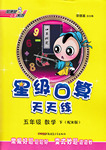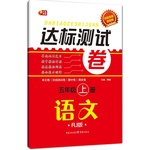题目内容
根据短文内容和所给汉语提示,写出短文空白处各单词的正确形式。每空格限填一词。
Good morning! Thank you for 小题1: (参加)World Weather Show for some 小题2:(大的)countries. Look at the world map! Canada is windy and cold 小题3:(现在). Please wear 小题4: (温暖的)clothes when you go out 小题5: (在外). It’s spring, China is windy and cool, and children like playing kites in the 小题6: (公园). But 小题7:(日本)is raining today. So please take an umbrella(雨伞)with you. Australia is 小题8:(晴朗的)and hot. You can wear T-shirts, skirts or shorts. Some people wear 小题9:(眼镜)on the beach. Thanks for 小题10:(你的)watching.
Good morning! Thank you for 小题1: (参加)World Weather Show for some 小题2:(大的)countries. Look at the world map! Canada is windy and cold 小题3:(现在). Please wear 小题4: (温暖的)clothes when you go out 小题5: (在外). It’s spring, China is windy and cool, and children like playing kites in the 小题6: (公园). But 小题7:(日本)is raining today. So please take an umbrella(雨伞)with you. Australia is 小题8:(晴朗的)and hot. You can wear T-shirts, skirts or shorts. Some people wear 小题9:(眼镜)on the beach. Thanks for 小题10:(你的)watching.
小题1:joining
小题2:big
小题3:now
小题4:warm
小题5:out
小题6:park
小题7:Japan
小题8:sunny
小题9:glasses
小题10:your
试题分析:这是一篇世界天气展的解说词。文中主要介绍了世界主要大国的天气情况。
小题1:根据前文介词for可知做介词宾语需用动名词形式,结合汉语可知填joining。
小题2:根据汉语可知填形容词big。
小题3:结合语境及汉语可知填时间副词now。
小题4:结合语境可知句意为:请穿上温暖的衣服,故填形容词warm。
小题5:结合语境可知句意为:当你出去时。结合汉语可知填地点副词out。
小题6:根据汉语可知填park,结合语境可知指的是一个公园,用单数即可。
小题7:根据汉语可知填Japan。
小题8:根据汉语可知填形容词sunny。
小题9:根据汉语可知glasses,需注意眼镜一般用复数形式。
小题10:根据汉语提示可知填形容词性物主代词your。
点评:由于有汉语提示,本文理解句意比较容易。部分小题可以当做简单的汉译英题型来做,答题中注意所填单词与上下文的联系,尤其是动词,名词需要注意进行适当的词形变化。

练习册系列答案
 星级口算天天练系列答案
星级口算天天练系列答案 芒果教辅达标测试卷系列答案
芒果教辅达标测试卷系列答案
相关题目